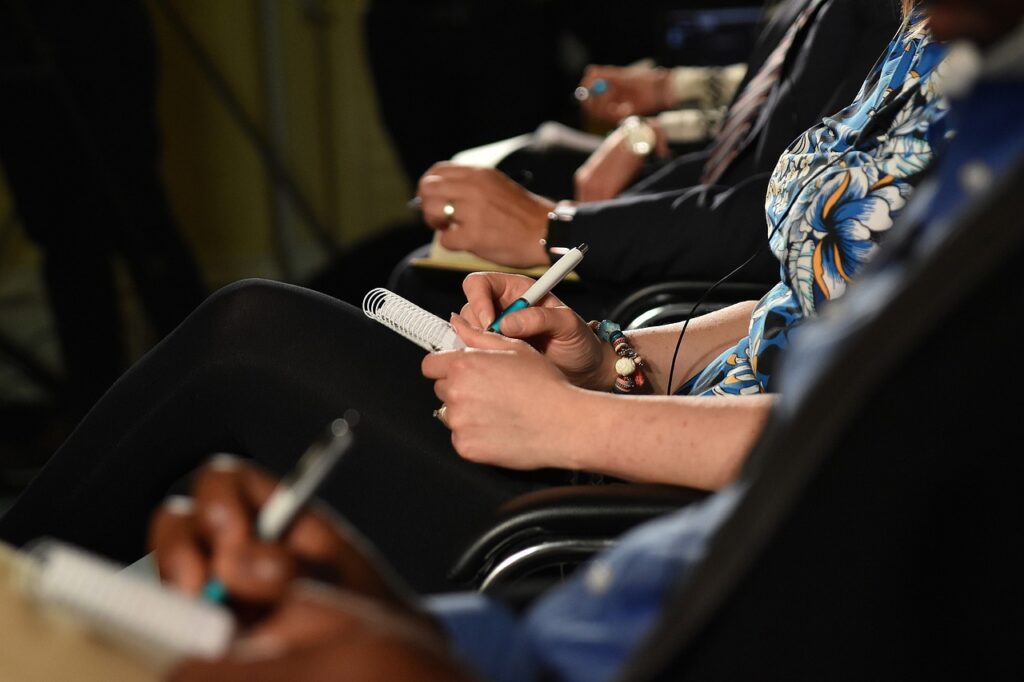Just 32.6% of speakers at major tech conferences in 2024 were women—despite bold promises on diversity and inclusion.
Blackburn, UK. April 10th 2025 – Pomona Partners has released a new analysis of 12 major global technology conferences from the previous year, revealing significant gender disparities among speakers.
Among the conferences analysed, London Tech Week stood out as a trailblazer for diversity, achieving near-equal gender representation with 49.3% female speakers. The Digital Marketing World Forum also shone brightly, showcasing 48.2% women speakers. These events prove that when conferences make diversity a priority, it’s absolutely possible to create a platform for an array of perspectives.
However, the analysis revealed stark contrasts at several high-profile technology events, where female representation among speakers remained notably low. Some of the largest and most well-known shows featured women in fewer than 23% of speaking roles, highlighting the ongoing challenge of achieving gender balance across the industry’s biggest stages.
“While some events are taking meaningful steps towards gender parity, it’s clear that many are still falling short,” said Gemma Stirling at Pomona Partners. “At Pomona Partners, we don’t just talk about diversity—we live it. We committed on day one of the agency that more than 50% of our roster would always be women. Today that approach drives enquiries from those organisers with their own commitment to diversity.”
Entrenched industry networks, and the persistent gender imbalance in senior roles are potential contributing factors to the disparity. However, the message from Pomona Partners is clear: this is not an unsolvable problem. By setting measurable diversity targets, actively recruiting female speakers, and genuinely seeking fresh talent, tech conferences can evolve into true forums of representation.
Though the sample size is small, the analysis poses questions about why certain sectors, particularly AI and software, continue to struggle with diversity. Events focused on digital marketing and broader technology topics appear to attract a more balanced speaker lineup. This indicates that audience demographics and industry culture may play a significant role in shaping diversity outcomes.
“Our data shows that it’s not enough to simply say diversity matters—you have to build it into every stage of planning,” added Gemma. “The conferences that succeed are those that treat diversity as a strategic priority, not an afterthought.”
Naomi Timperley is a speaker at Pomona Partners, and is Co-Founder of Tech North Advocates and UK Lead of Global Tech Advocates. She said: “When women are visible on tech stages, it inspires the next generation to step up and speak out. Representation fuels ambition. The fact that some conferences are achieving near-parity shows what’s possible when inclusion is intentional. It’s time for the rest of the industry to catch up.”
“I’ve worked with countless women founders, technologists, and creatives who are shaping the future—but too often, they’re not given the mic. We need conference organisers to stop relying on the usual suspects and start cultivating diverse pipelines of talent. Change happens when we stop making excuses and start making space.”
Fiona McKay, Pomona Partners speaker, CEO of Lightbulb Leadership Solutions and founder of The Menopause Maze, said: “Women are 51% of the population, but they are not 51% of the tech industry. Women in the sector are already dealing with innate industry bias and events should be different. “Women want to really accelerate, and event planners would benefit from providing relevant female speakers that can engage with women and address the wide areas of expertise, leadership and development opportunity that speaks directly to women and ensure that diverse and different views including female voices are heard.”
ENDS

